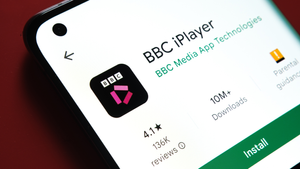UK Culture Secretary Lucy Frazer has indicated that the BBC might not get the increase in licence fee income that it was expecting next spring.
Asked about the anticipated £15 increase in the licence fee, due to kick in next April, Frazer told Radio 4's 'Today' that "the cost of living is affecting families across the country and we have to make sure it’s affordable". She then added that "government and companies are making adjustments, recognising that costs are rising across the board", and therefore so should the Beeb.
The licence fee paid by each TV watching British household - which provides most of the money to fund the BBC's TV, radio and online services - was frozen by the government for two years in 2022. Which meant in real terms the broadcaster was making less money each year and therefore had to instigate some sizeable cutbacks.
Following that two year freeze, it was expected that the licence fee would increase each year through to 2027 in line with inflation.
Many expected that to equate to a £15 increase next year, but Frazer now says that her department is looking into what measure of inflation to employ, implying that they might use a metric that results in a more modest uplift. Which would obviously result in the BBC having less money to spend.
In her 'Today' interview, Frazer continued: “We did freeze the licence fee to protect people, it is due to rise with inflation - we will enable it to rise with inflation - but we are looking very carefully at the rate of inflation".
According to the Huffington Post, presenter Justin Webb mused that BBC bosses might consider that response to be "slippery" because everyone expected a standard measure of inflation to be employed and "you’re now saying it won’t be".
Frazer hit back at that claim, adding that “what we need to look at is the BBC more broadly and how we make it fair to licence fee payers whilst at the same time protecting the amazing service that it provides across the board".

